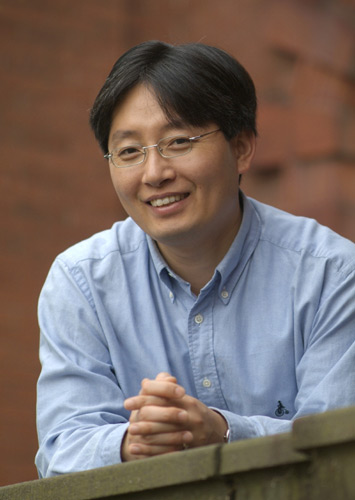
In cities and towns all over the world, people are finding themselves feeling anxious, guilty and insecure about a form of spending they may not want to admit to. It’s spending that has deep repercussions if it gets out of hand — gambling.
Marketing and consumer studies professor SunghwanYi isn’t a gambler. In fact, up until 2006 he hadn’t even been in a casino. But now he’s hoping his exploratory work will provide new insight into this under-researched and under-discussed field.
Yi is the first researcher to apply time-based response methods to the field of gambling. This approach, which times how long it takes participants to respond to a series of words and/or images in a specified way, is commonly used by psychologists to assess opinions and attitudes to topics that are often stigmatized, including alcohol and drug-use and racial biases. Yi’s study, which was funded by two grants from the Institute for Problem Gambling and was presented at conferences in Nevada and Slovenia, is set to be published in an upcoming edition of the Journal of Gambling Issues.
Up until now, gambling researchers have used self-report measures like interviews and paper-based surveys to assess people’s attitudes toward gambling. Although widely used, Yi says this method has several drawbacks.
“Gambling isn’t something most people like to talk about in front of other people,” he adds. “People know they should respond one way, and they may believe they are being truthful. At a deeper level, however, these responses may conflict with their true feelings. Implicit measures of attitudes tend to reveal automatic impulsive mental processes, whereas the self-report measures conscious reflective processes.”
He also wanted to find out whether people’s attitudes toward gambling become altered or refined when their memories of gambling are triggered by sensory types of associations.
“Even though regular gamblers may say they do not like gambling that much, immediately accessible associations that spring to mind upon seeing pictures of casinos may provide a predominantly positive effect, such as feelings of excitement,” he says.
Yi also explored the extent to which gambling is associated with arousal or sedation in regular gamblers. The finding was inconclusive; he says it’s probably due to the possibility that some gamblers are motivated to gamble to seek excitement and arousal whereas others use gambling as a coping mechanism to deal with stress and anxiety. Yi is in the process of designing a study to investigate this possibility.
Through his research, Yi has found that moderate- to high-risk gamblers’ automatic attitudes are more positive than low-risk gamblers’ automatic attitudes. But he also says moderate- to high-risk gamblers’ automatic attitudes may be best characterized as ambivalent because they responded faster than low-risk gamblers when gambling images were paired with negative words as well as positive words. He is now designing further empirical studies in order to investigate how automatic associations of gambling are developed and transformed as gambling frequency and severity increases.